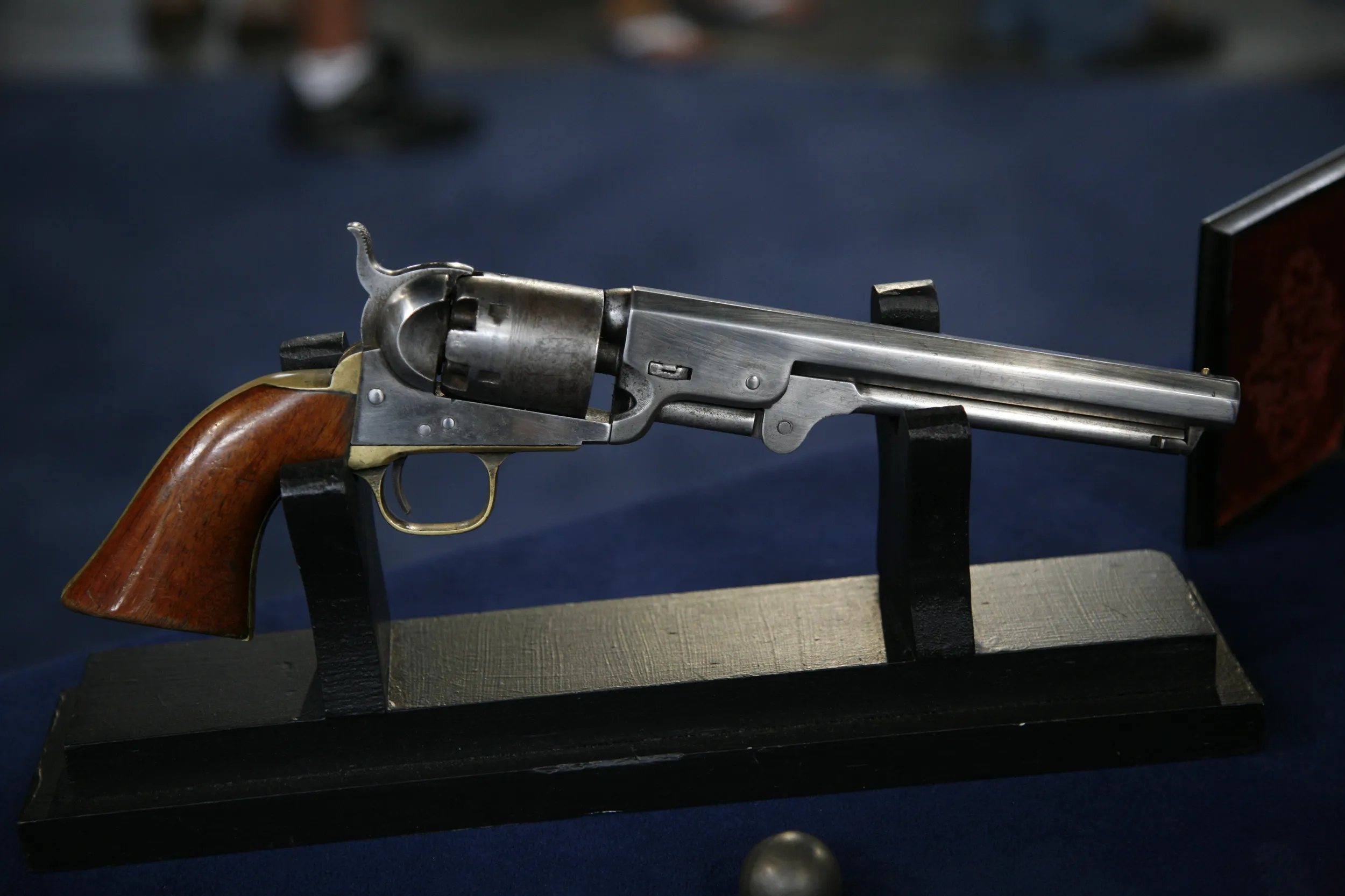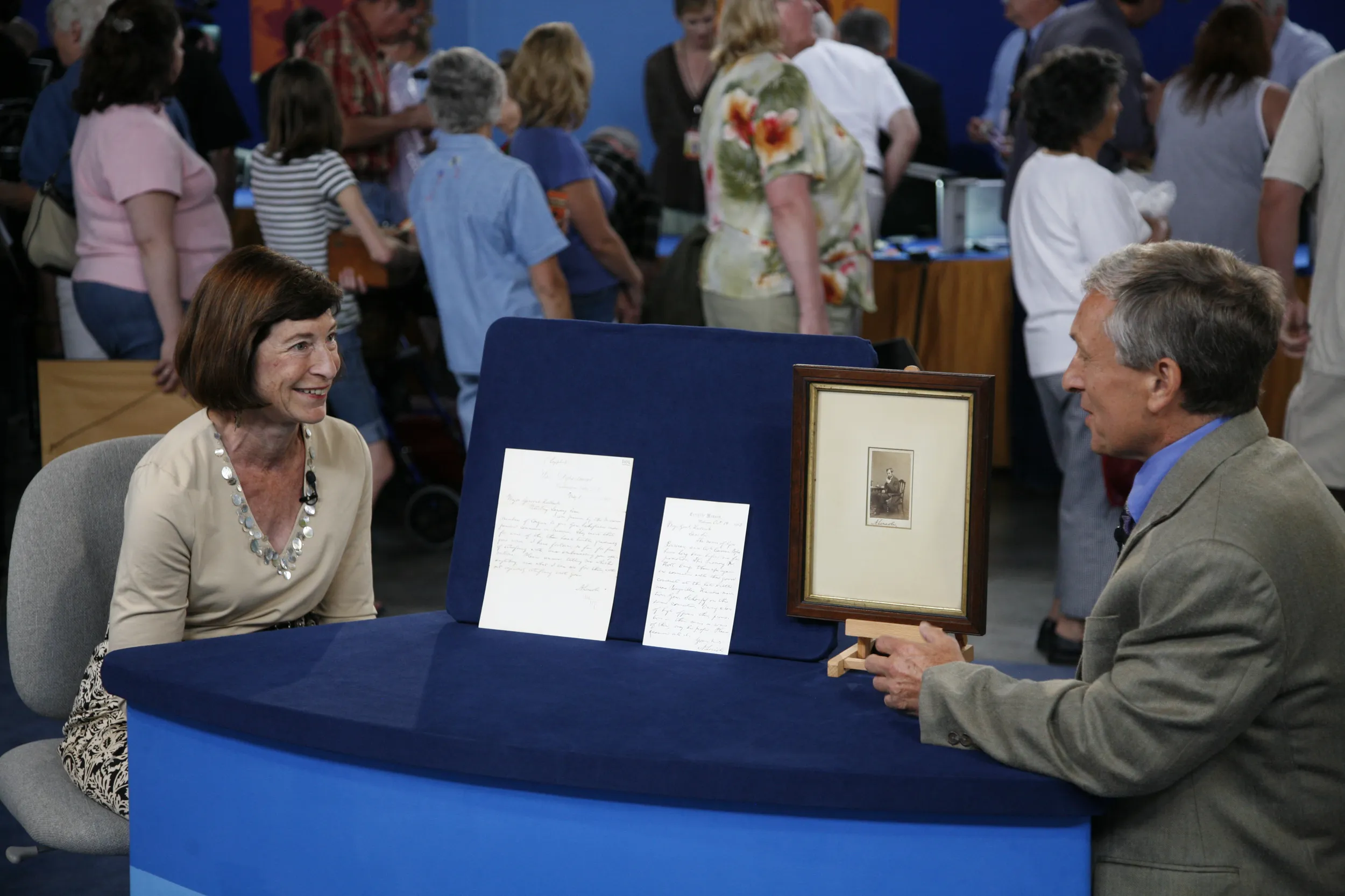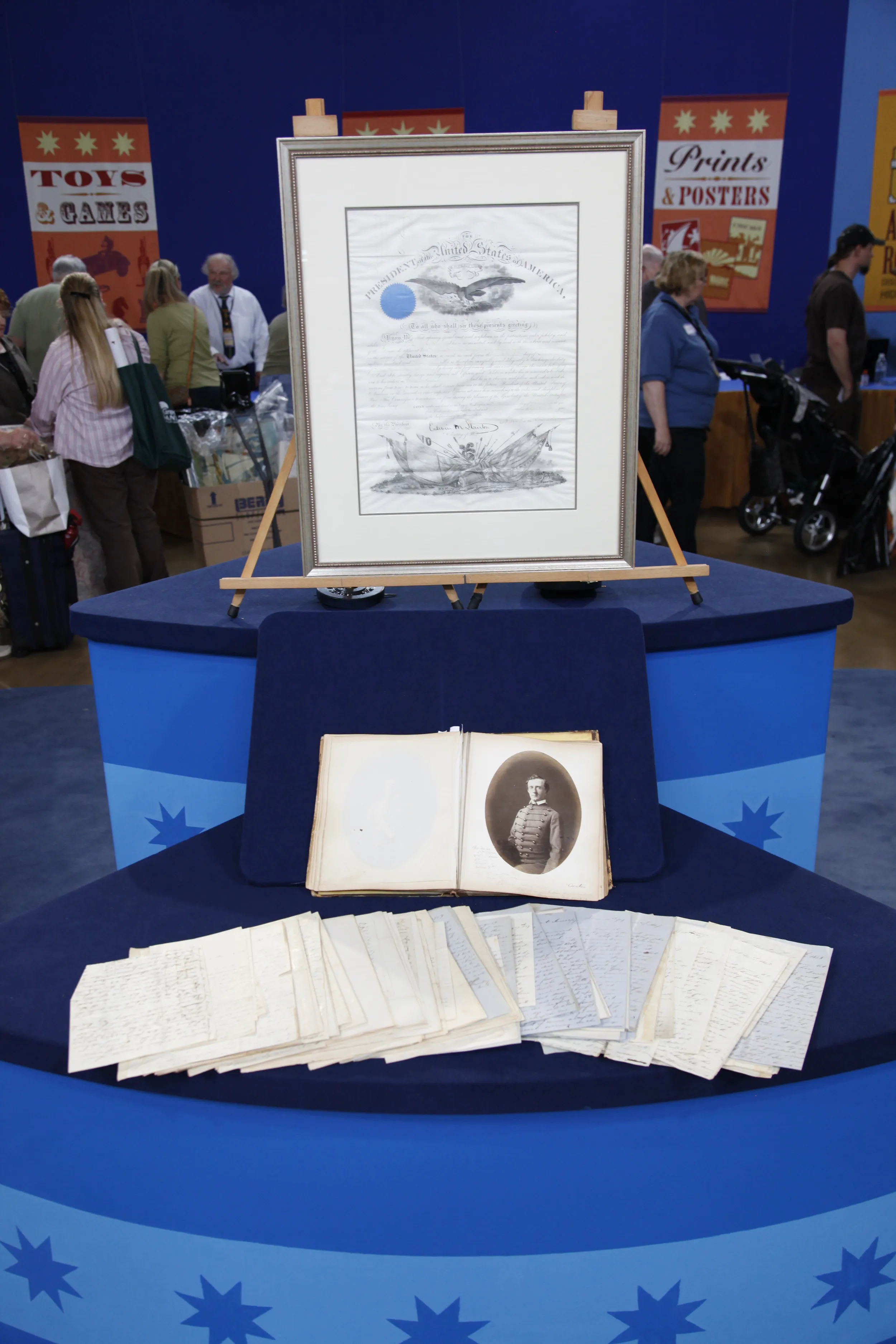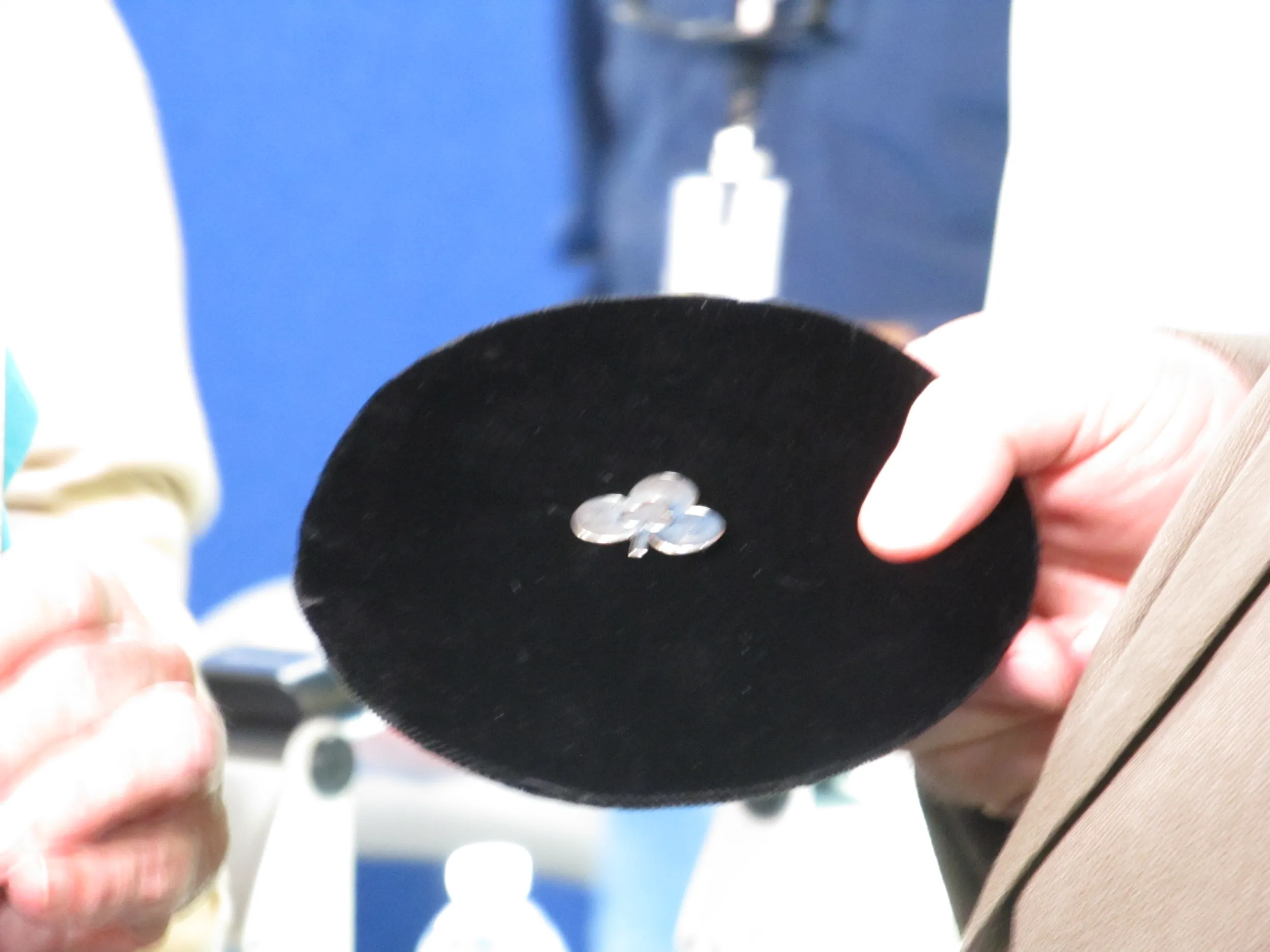Civil War Battle of Petersburg Archive
GUEST: These are from my great grandfather, who was a captain in-- for the Confederacy in the Civil War. This is his sword. Uh, this is a-- the sword of a captain from the Union side that he captured in the Battle of Petersburg in 1864. So he was a captain, um, and he was commanding a troop of, of men from the North Carolina, the– I think the 35th. And he came up over the hill. They weren't expecting to– to engage any enemy combatants, and he surprised a number of Union soldiers, and he was shot at multiple times. You can-- you can see there's a hole where the musket ball went through the guard and hit him in the hand. But he was able to capture the Michi-- the force of Michigan Sharpshooters. And he captured the captain from the Michigan Sharpshooters. And they started talking, and the Michigan captain helped him clean his hand and that wound, they went down to the river. The captain said, "You know, (chuckles) I haven't taken a bath in a month. And I know I'm going to go to this internment camp, and you know, could I take a bath?" He said, "Sure, go ahead." They walked back to the lines. They had to spend the night before they were taken to the internment camp. And they never thought they'd see each other again. They both survived the war. My great grandfather lived in, um, North Carolina. He worked for the railroad. He had a boarding house. He was, you know, telling the story one night with boarders there, and the boarder said, "I've heard that story, but from the other side, from the Union side." So he wrote to the Detroit Free Press, the paper there in Michigan, and basically said, "Dear Captain, if you are here and you read this, I have your sword, I'd like to give it back to you." And in 1888, many years later, he got a reply from this captain, who said, "I remember you and your courteous treatment "the night of the 17 of June, 1864. If I am not mistaken, you had a slight wound across the back of your hand and I turned some water over it to cool it off. Am I right? You say you have my sword. Friend Johnson, keep it. If you have boys, let it go to them as a trophy captured in a fair fight. I am teaching my boys to respect Southern men who fought for their convictions; that I then thought I believed– what time has since proved– that the cause for which I fought represented the best interest of the whole country. They on their part, were so honest in their convictions as I in mine. And more-- I tell them that it is my belief that having trusted to the issue of war, that you of the South have accepted the result in good faith and would today be as quick to rescind an insult to our father's flag as we. Am I not right in this? If you can so teach your boys, when the next war comes, your boys and my boys will stand shoulder to shoulder against enemies of our common country." And they remain friends until, until their death. And we just always kept it because of what it signifies, as, you know, we're all Americans, we, we go through hard times, but in the end, we like to come back together.
APPRAISER: The Civil War, it goes all the way back to that original sin of slavery…
GUEST: Mm-hmm.
APPRAISER: ...and the difficulties that we've had as a country coming around that, and those conflicts and those problems and the repercussions of this...
GUEST: They're still here. Some--
APPRAISER: It's still here. And it's nice to be able to see two individuals who, at-- in one moment are trying to kill each other.
GUEST: That's right.
APPRAISER: And the next moment, you see these tender acts of kindness.
GUEST: Mm-hmm.
APPRAISER: Your Union Army Michigan Sharpshooter Captain apparently purchased– a private purchase...
GUEST: Mm-hmm.
APPRAISER: ...European-made– German, specifically-- sword.
GUEST: Mm-hmm.
APPRAISER: His own sword that he was carrying. It is simply a United States, a U.S. model 1850 foot officer sword, which was not unusual for Confederate officers to be carrying. We see his sword belt here. That particular Confederate spoon and wreath buckle...
GUEST: Mm-hmm, mm-hmm.
APPRAISER: ...is generally thought to have been made, uh, in New Orleans.
GUEST: Hm.
APPRAISER: It's a somewhat rare example.
GUEST: Mm-hmm, mm-hmm.
APPRAISER: Obviously, if you are the descendant of an enslaved person, those letters can-- C.S...
GUEST: Right.
APPRAISER: ...mean something entirely different. And there's a different, very understandable reaction to that, because that represents a part of their history that...was… absolutely terrible, from, from every perspective.
GUEST: Completely agree.
APPRAISER: The next perspective on this is artifacts in context, what they represent, the story that they can tell. And in this case, the story is very beautifully documented in these letters. Now, we don't have the original letters, unfortunately.
GUEST: Mm-hmm.
APPRAISER: Who did this transcription for you?
GUEST: The transcription is my great grandfather's surviving daughter at the time. And so this is shortly near his death, and she was putting together all his remembrances from original letters that, as you say, don't exist anymore.
APPRAISER: They're telling a story of humanity in the middle of inhumanity and of reconciliation that we should all aspire to.
GUEST: Exactly.
APPRAISER: And, really, what it comes down to is being able to see each other as human beings. A retail value for this group, as presented here today, would be between $20,000 and $25,000.
GUEST: That's... um, surprising, but great. (chuckles) I mean, we aren't looking, obviously, to part with it, but that's good to know. We're calling our insurance person... (laughs) to make sure we can insure it.
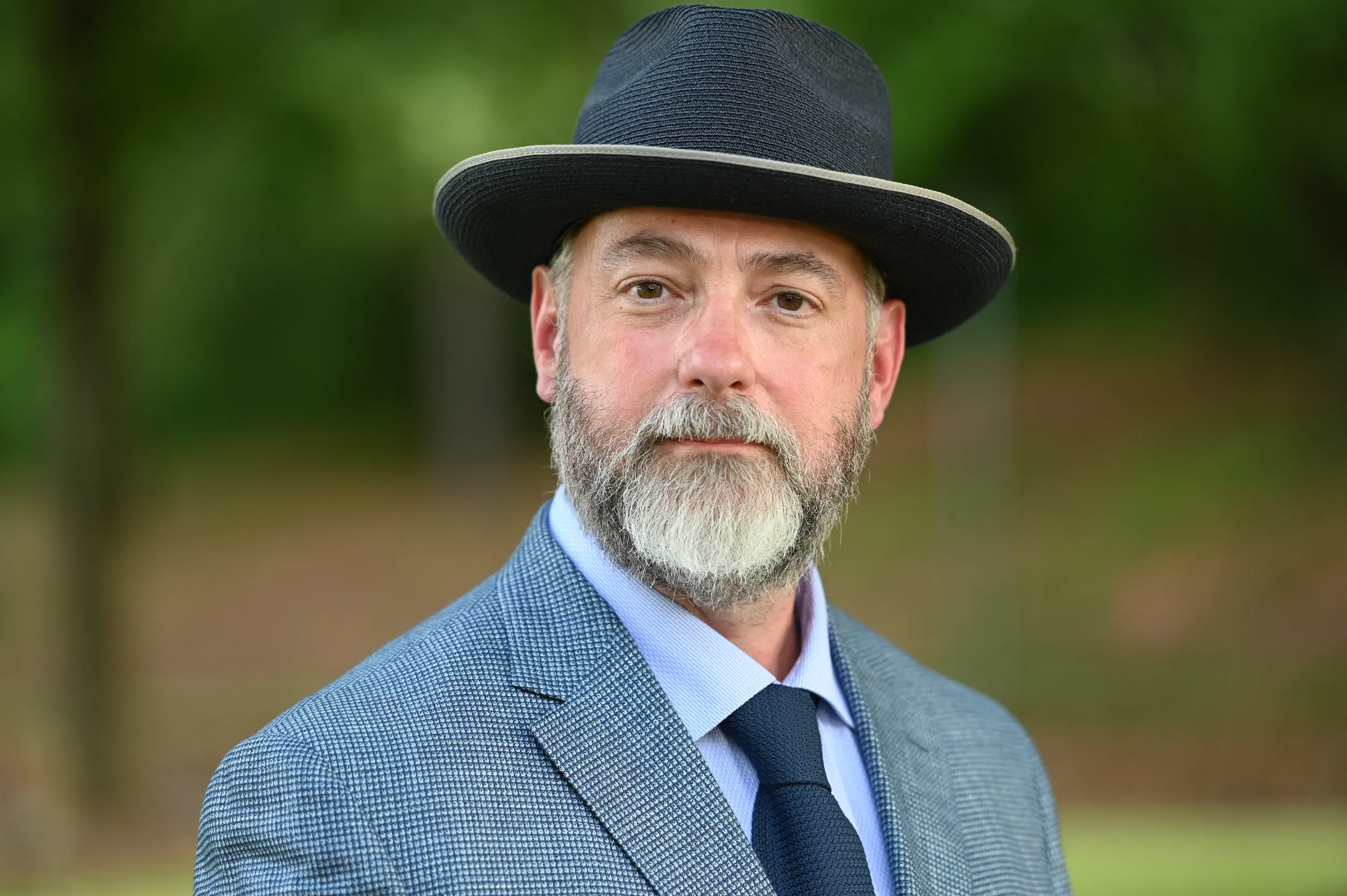
$20,000 - $25,000 Insurance
Photos
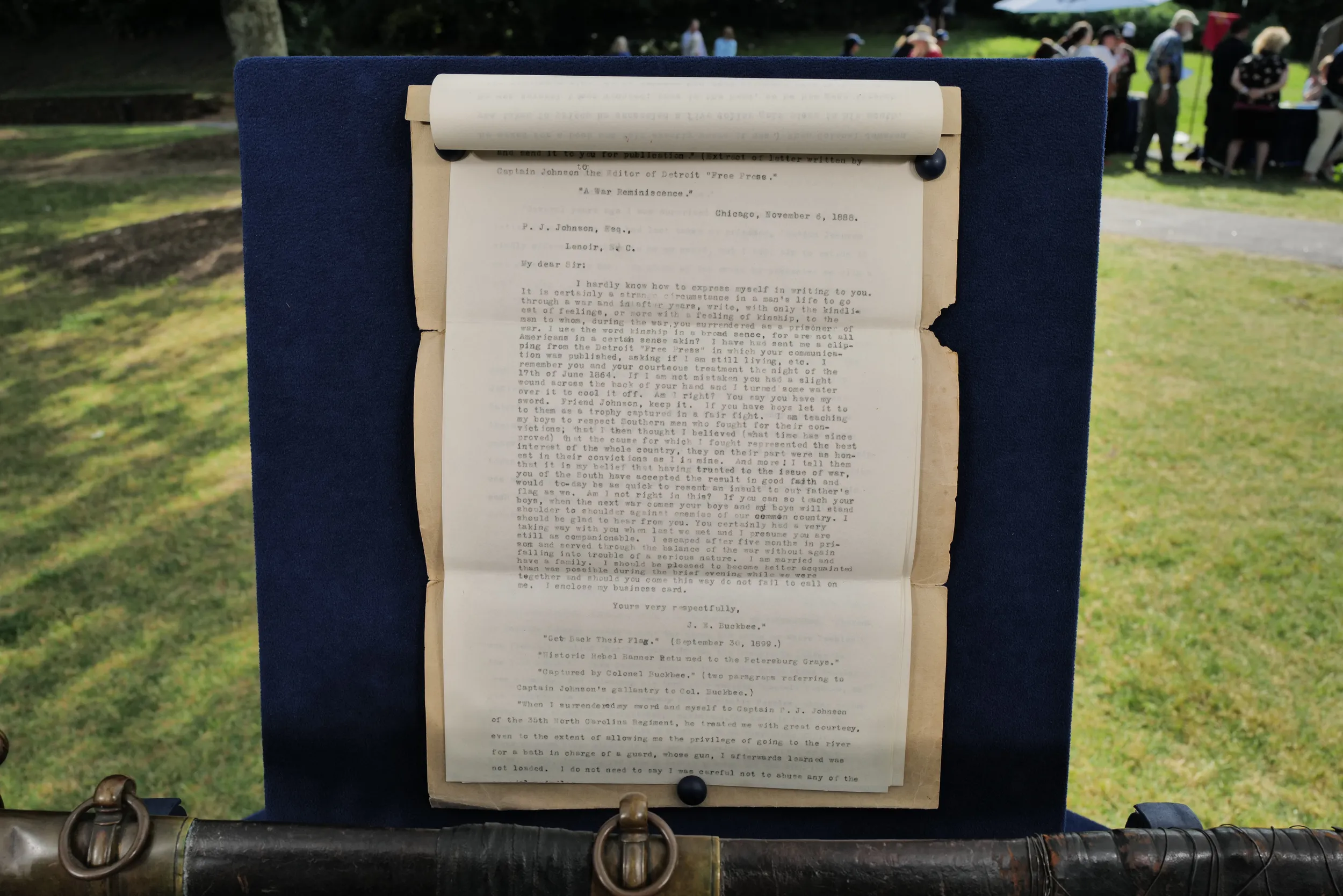
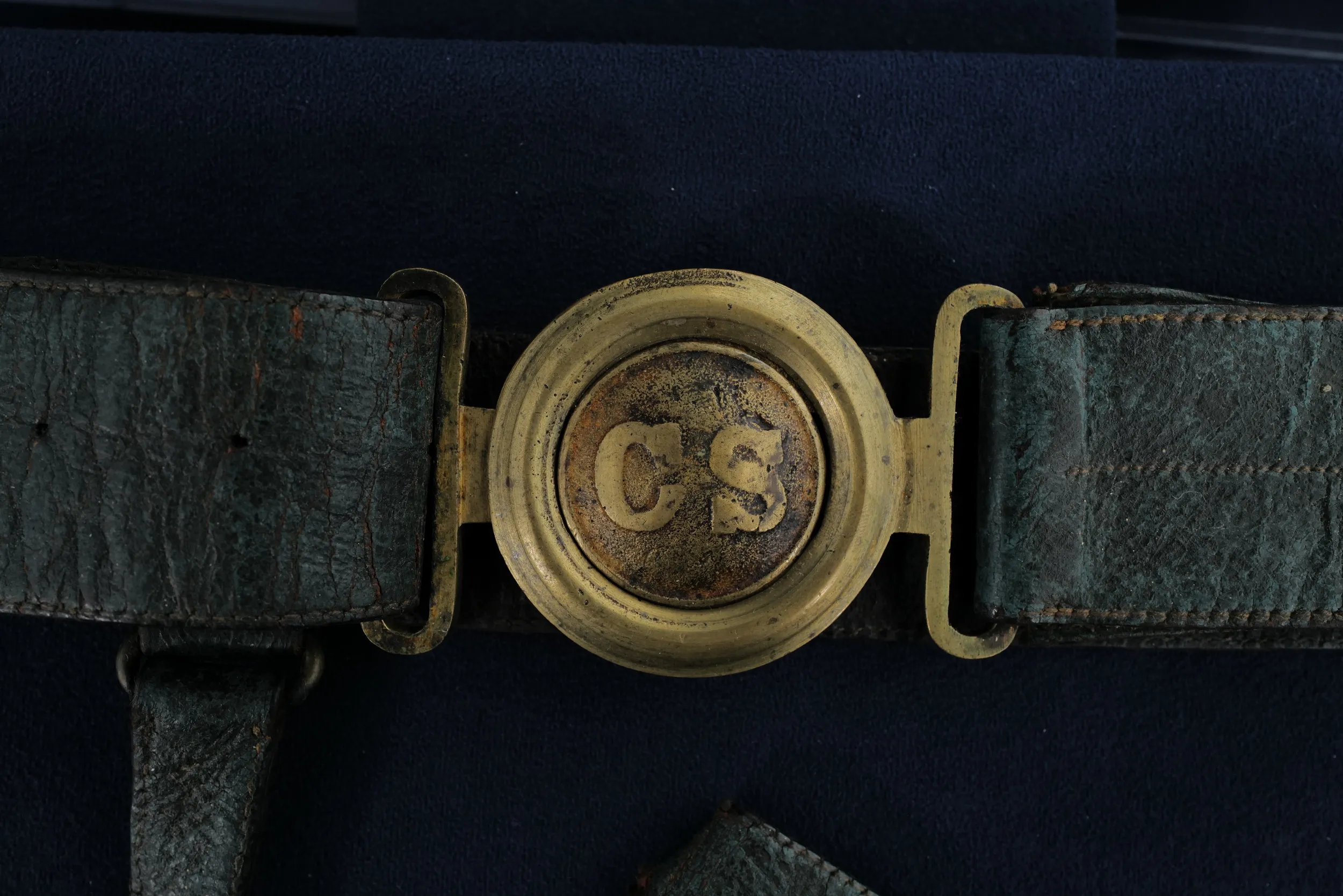
Featured In
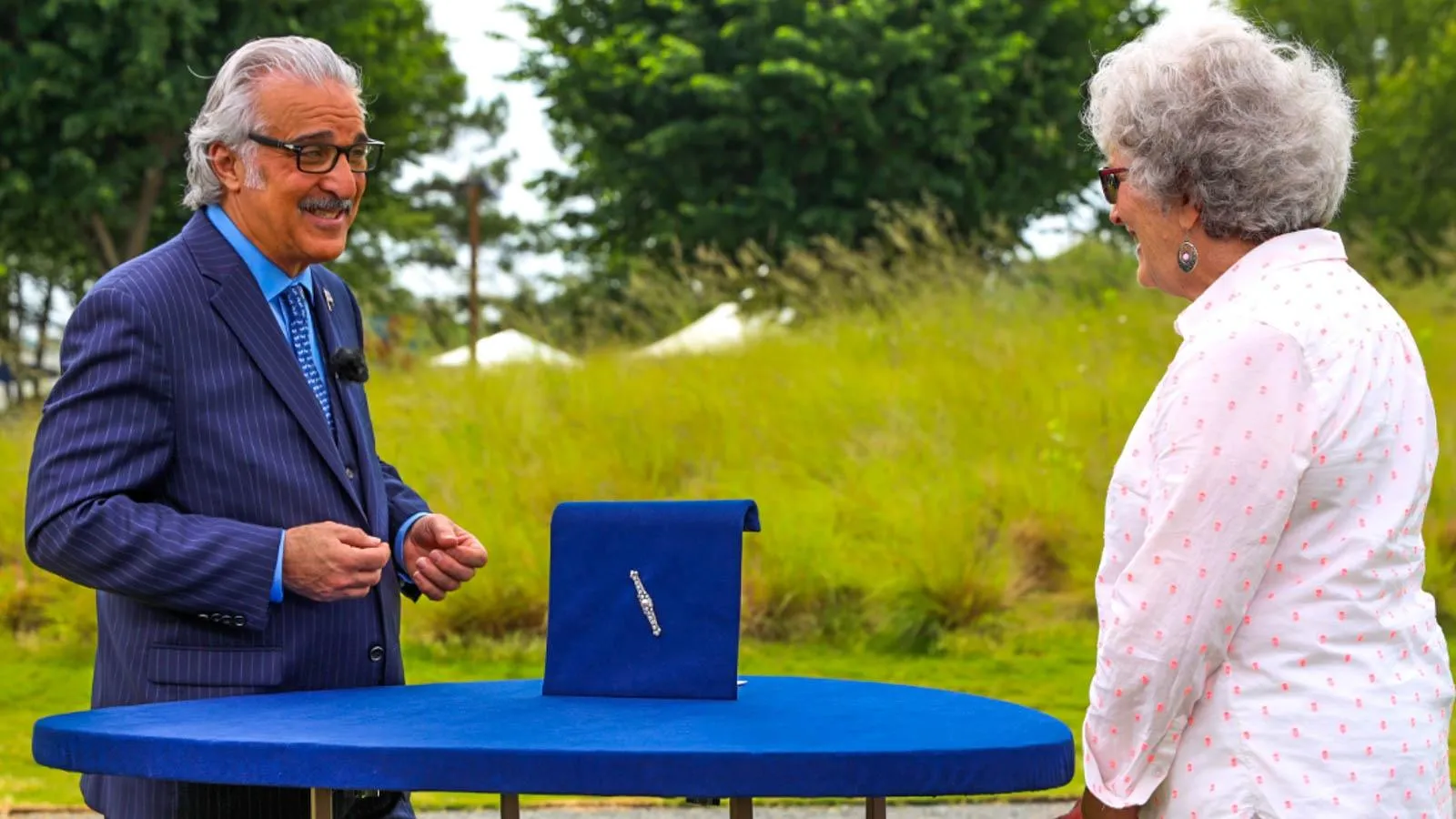
episode
North Carolina Museum of Art, Hour 3
Wrap up ROADSHOW's final hour in Raleigh, NC with an appraisal worth up to 120,000!
Civil War
Understanding Our Appraisals
Placeholder
